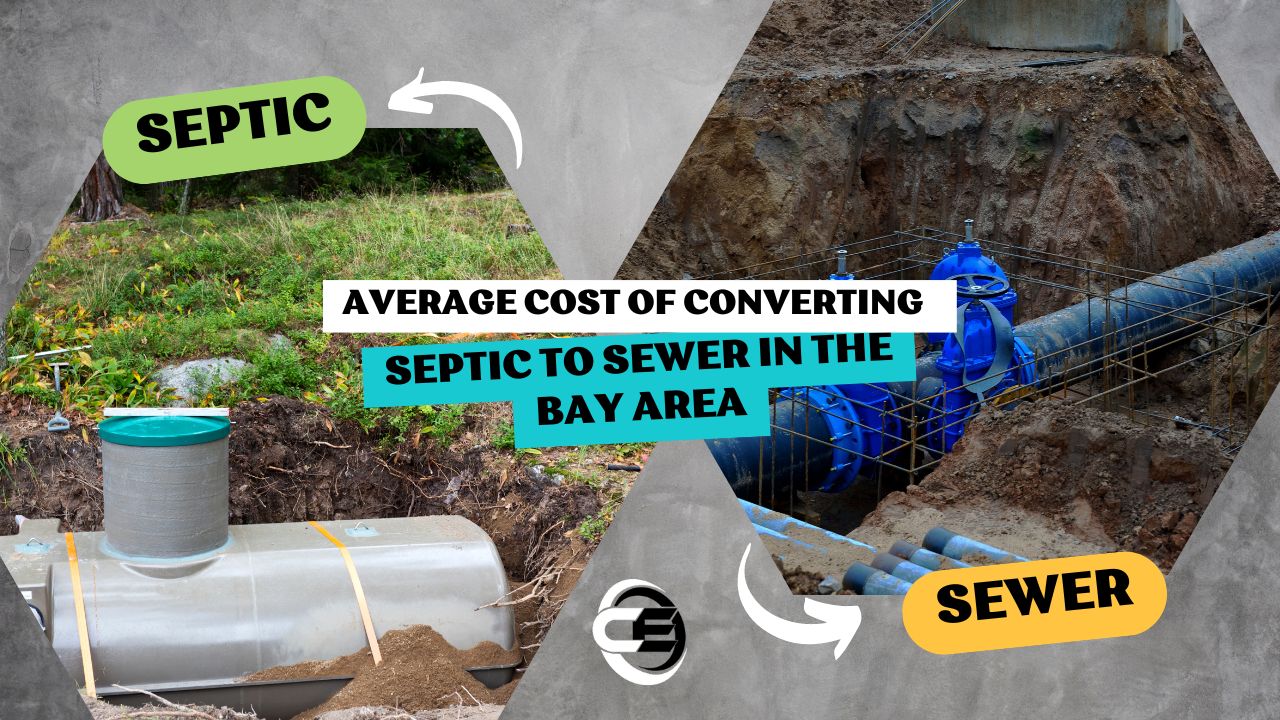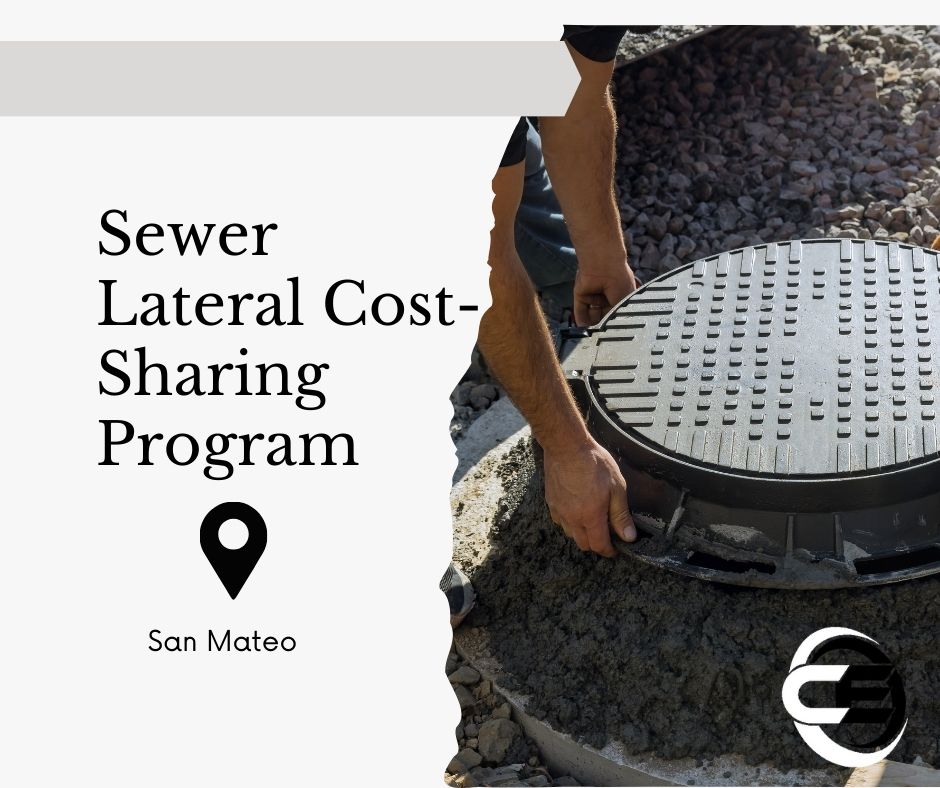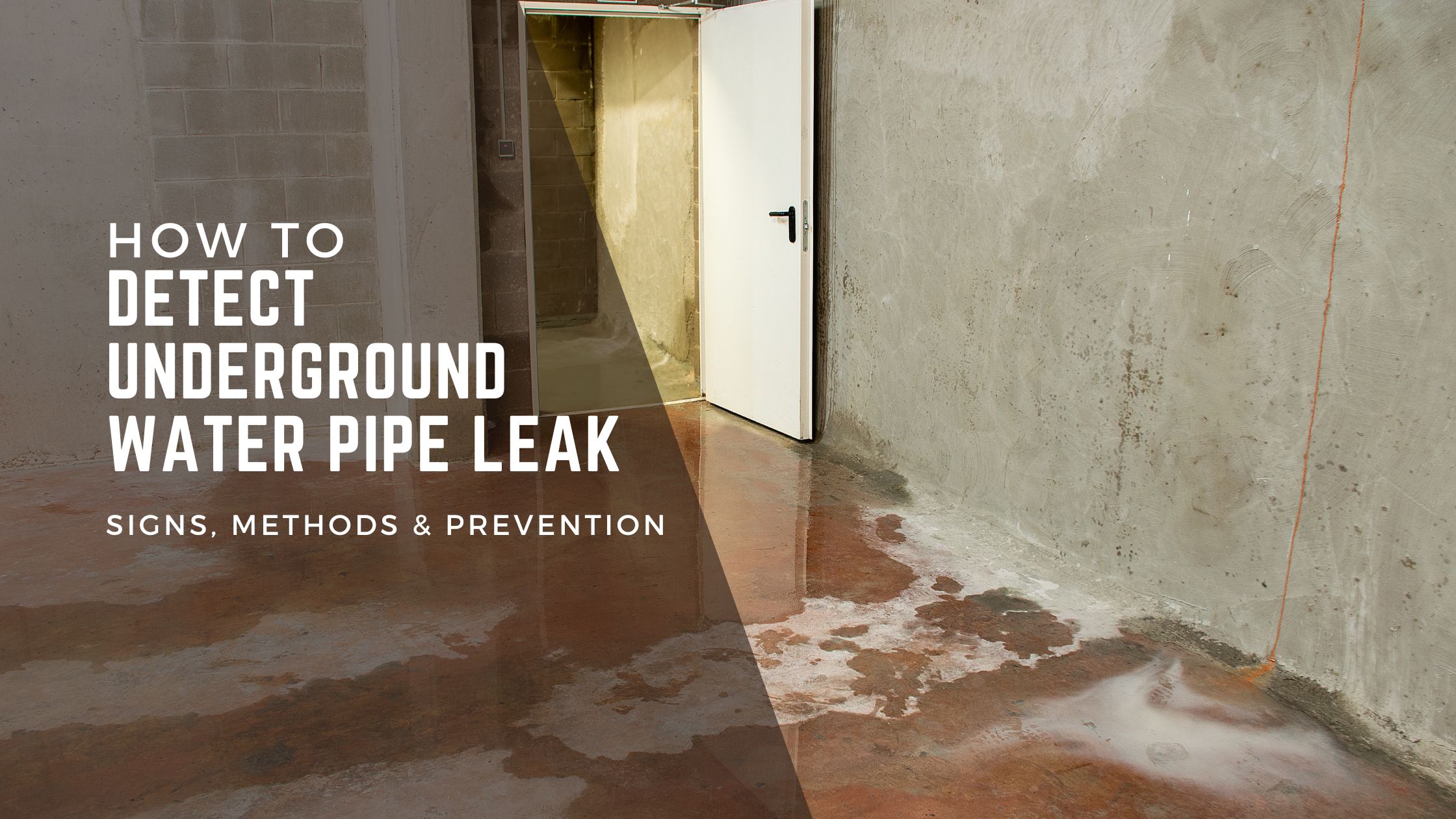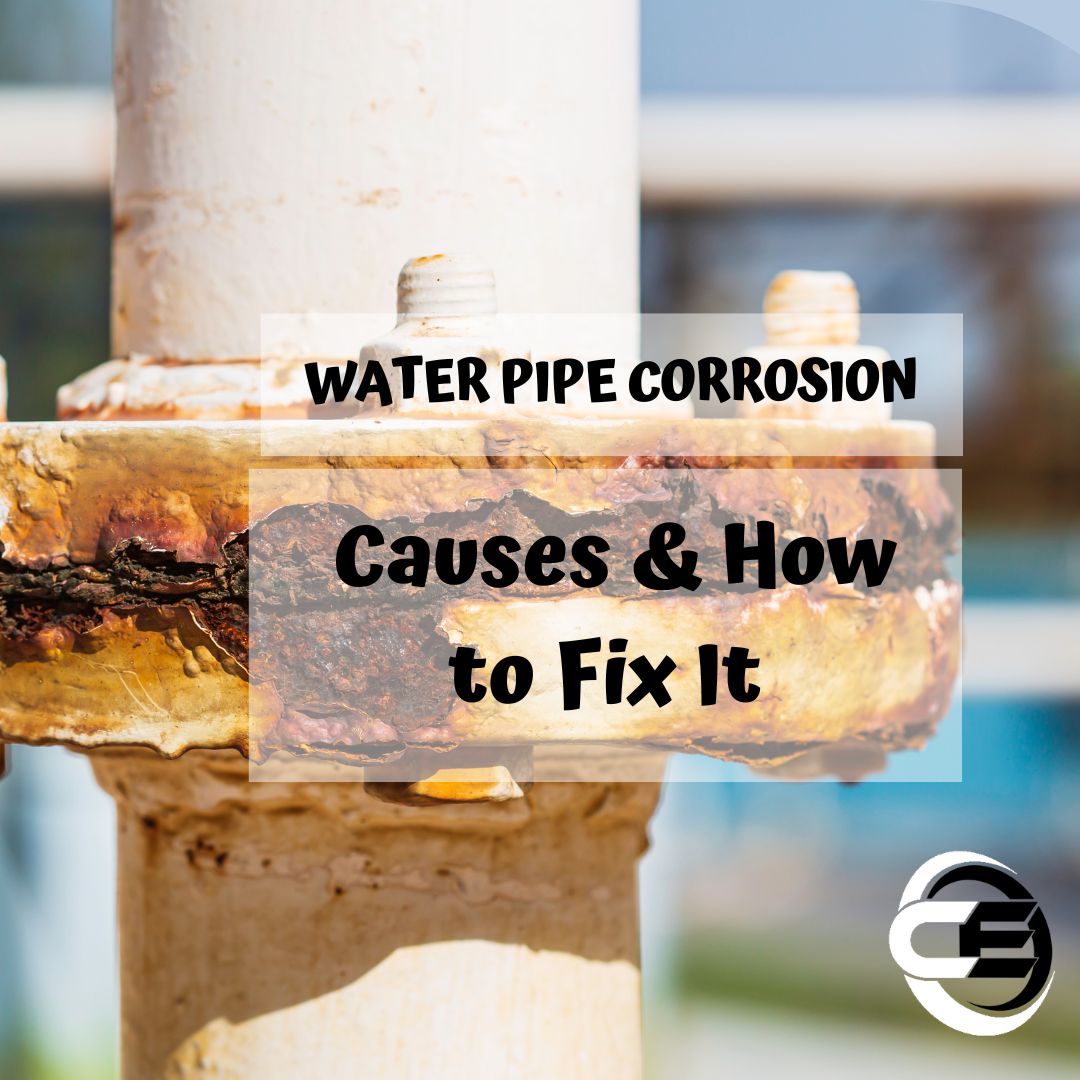Water pipe corrosion is a common issue affecting many households and businesses. According to research on Science Direct, corrosion accounts for 30% of all oil and gas pipeline failures. But what causes water pipe corrosion, what are the signs, and how can you fix it? Keep reading to discover this and much more!
Go to:
- What is Water Pipe Corrosion?
- Top Causes of Water Pipe Corrosion
- 5 Signs of Water Pipe Corrosion
- Methods to Fix Water Pipe Corrosion
- Contact Century Home Services for Water Pipe Corrosion Fixing
What is Water Pipe Corrosion?
Water pipe corrosion occurs when the metal in your plumbing system reacts with water and other substances, causing it to deteriorate over time. This reaction can lead to the formation of rust, which weakens the pipes, leading to leaks and breaks.
The most common causes of pipe corrosion are high water pH levels, dissolved oxygen and carbon dioxide, corrosive metallic materials, and water temperature.
Top Causes of Water Pipe Corrosion
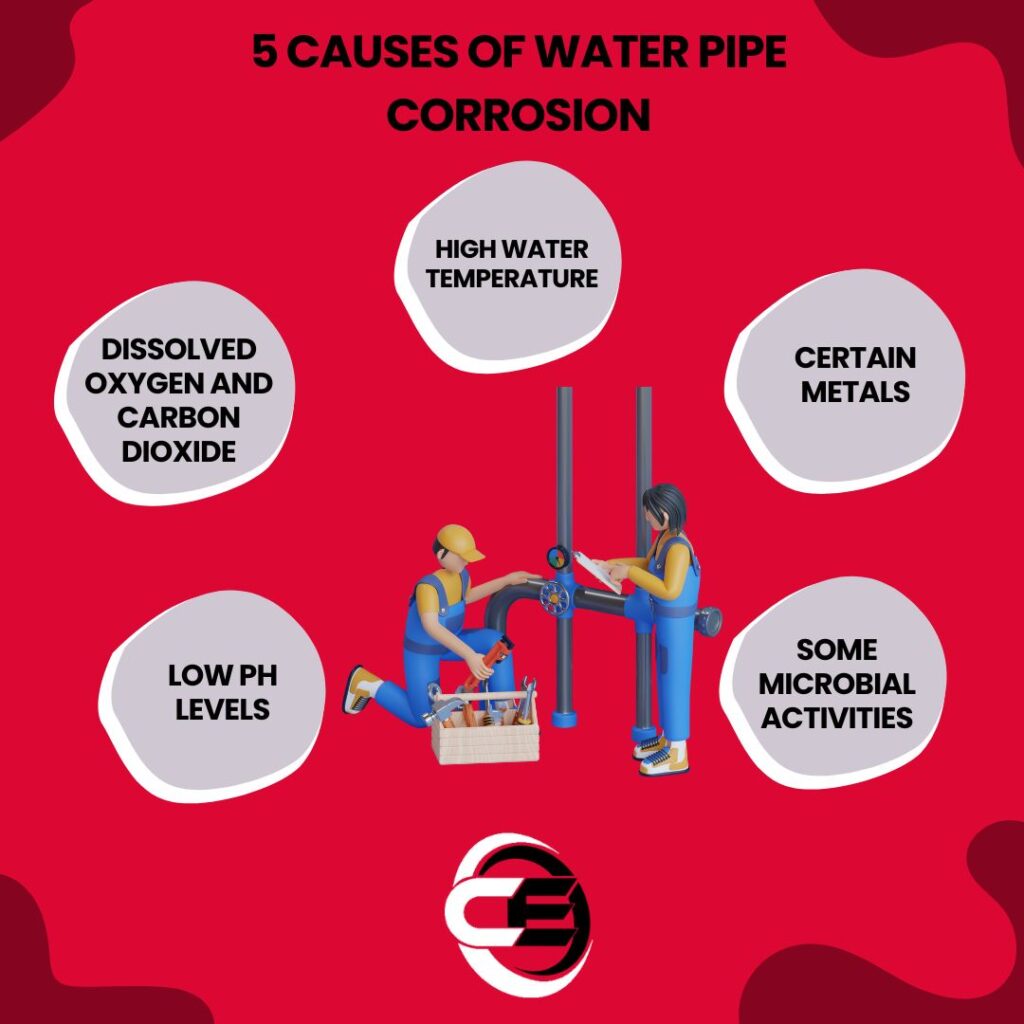
1. Low PH Levels
Water with a low pH (acidic water) can cause pipes to corrode faster. Acidic water dissolves the protective oxide layer on the pipe’s interior surface, leading to water pipe corrosion.
2. Dissolved Oxygen and Carbon Dioxide
High levels of dissolved oxygen and carbon dioxide in water can accelerate the corrosion process. Oxygen reacts with the metal to form oxides, while carbon dioxide forms carbonic acid, which is corrosive.
3. High Water Temperature
Hot water can increase the rate of corrosion. The higher the temperature, the faster the chemical reactions that cause corrosion. This is why there is high corrosion on hot water heater pipes.
4. Certain Metals
Different metals corrode at different rates. Copper pipes are more corrosion-resistant than iron ones but can still corrode under certain conditions.
5. Some Microbial Activity
Certain bacteria, like Acidithiobacillus, which produces sulphuric acid, can induce corrosion in pipes by producing corrosive by-products. This type of corrosion is known as microbiologically influenced corrosion (MIC).
5 Signs of Water Pipe Corrosion
- Discolored Water: If your tap water appears brown, red, or yellow, it’s a sign of rust in your pipes. This discoloration is often due to iron oxide from corroded pipes.
- Metallic Taste: A metallic taste in your water can indicate that your pipes are corroding. The dissolved metals from the pipes alter the taste of the water.
- Leaks: Unexplained leaks in your plumbing system may be due to corroded pipes. Corrosion can create holes or weaken joints, leading to water leakage.
- Low Water Pressure: Corrosion can reduce the internal diameter of pipes, leading to lower water pressure. The build-up obstructs the flow of water.
- Stains: Rust stains in your sinks, bathtubs, or toilets can signify corroded pipes. These stains are often reddish-brown and can be difficult to remove.
Methods to Fix Water Pipe Corrosion
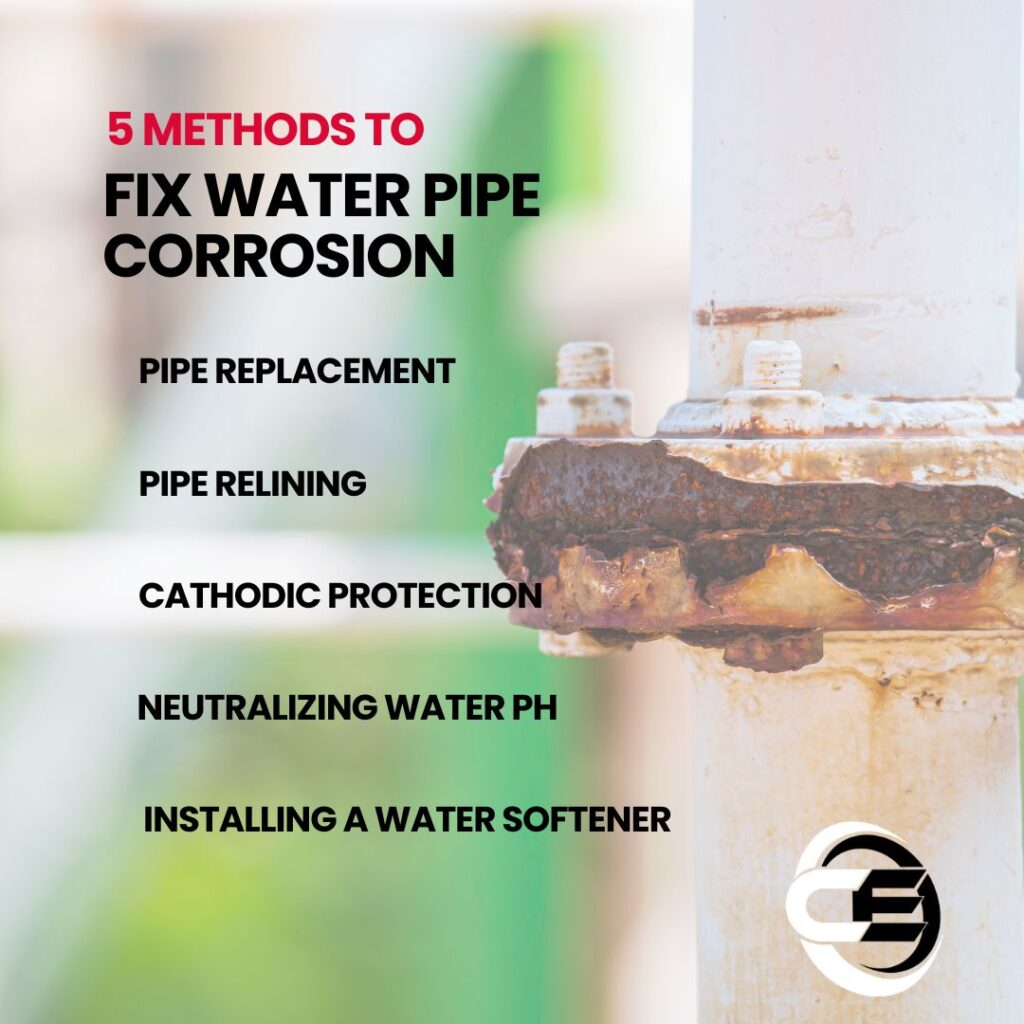
1. Pipe Replacement
The most effective but costly solution is to replace the corroded pipes with new ones. This can be done with more resistant materials, such as PVC or PEX. Pipe replacement ensures the plumbing system is corrosion-free and can function efficiently for years.
2. Pipe Relining
Plumbers can coat the interior of the existing pipes with epoxy resin and create a new pipe within the old one. It’s a less invasive method than pipe replacement, and it is ideal for pipes that are difficult to access or in buildings where extensive plumbing work would be disruptive.
3. Cathodic Protection
This technique involves attaching a sacrificial anode to the pipes. The anode corrodes instead of the pipe, protecting it from damage. Cathodic protection is commonly used for underground or underwater pipes, where other corrosion control methods are impractical.
4. Neutralizing Water pH
Treating the water to neutralize its pH and remove corrosive elements is a good corrosion prevention method. It can involve adding chemicals to the water supply or installing a water treatment system. Water treatment can include pH adjustment, removal of dissolved gases, and using corrosion inhibitors.
5. Installing a Water Softener
Hard water can contribute to corrosion, so installing a water softener can help reduce the mineral content and slow the corrosion process. Water softeners replace calcium and magnesium ions in the water with sodium ions, which don’t cause scale build-up.
Contact Century Home Services for Water Pipe Corrosion Fixing
Water pipe corrosion is a significant issue that can lead to costly repairs and potential health hazards. Understanding the causes and signs of corrosion can help you address the problem before it worsens. Methods like pipe replacement, pipe relining, cathodic protection, adjusting water chemistry, and installing a water softener offer effective solutions to fix corroded pipes.
Get in touch with us for more information on how to prevent corrosion in water pipes. If your pipes are already affected, we have non-invasive and eco-friendly solutions to this common problem.

